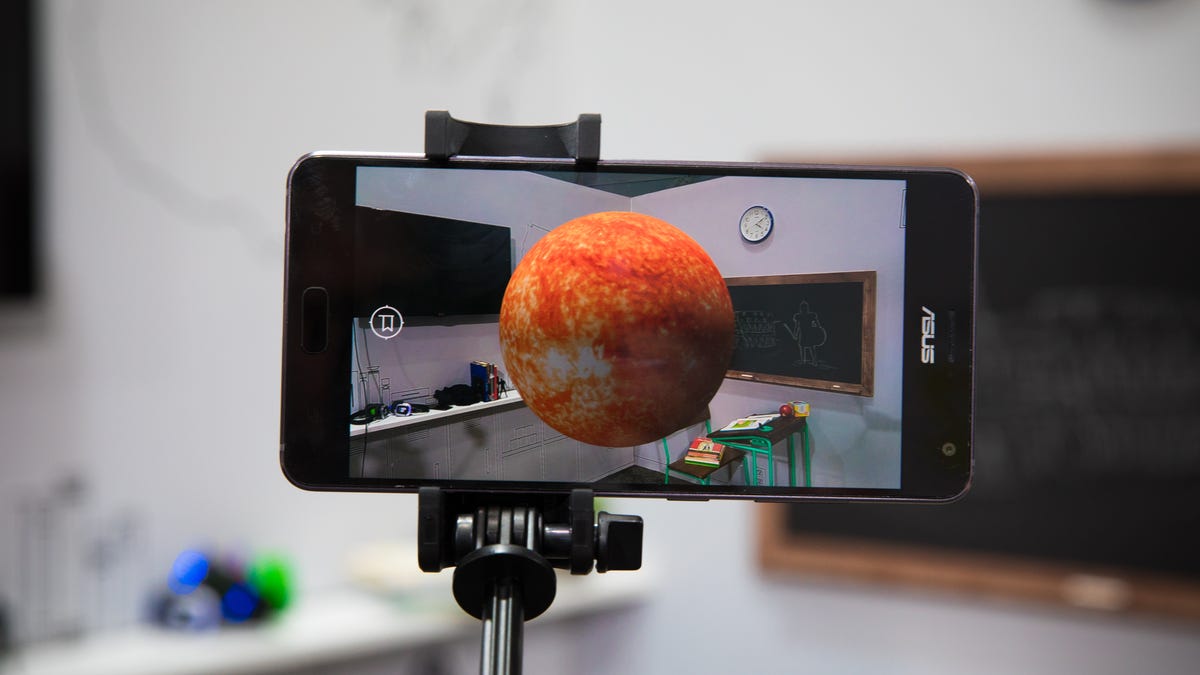The VR future is here but no one can agree on a name for it
Commentary: AR, mixed reality, VR, immersive computing: how many terms can reality take? The AR-VR turf wars have begun.

At the VR keynote at Google's IO developer conference, a slide appeared on screen to start the morning's presentation. Clay Bavor, head of AR and VR for Google, explained the spectrum of virtual and augmented experiences that Google is exploring.
On that spectrum, there are two points: Real Reality, and Virtual Reality. And in the middle, there's augmented reality. That's it.
The entire spectrum is called "immersive computing" by Google. Microsoft calls that same spectrum "mixed reality."
Microsoft uses "mixed reality" as a blanket term to cover its entire spectrum of upcoming hardware, from tablet-based AR to VR headsets to the Hololens. In Redmond, mixed reality is anything that blends the real world ("real reality") and the virtual world ("virtual reality"). It's anything that puts 3D virtual objects into real space, making the two seem blended. (Pokemon Go is the most popular, if low-tech, example.) Mixed reality is a term used by others in AR and VR, not just Microsoft.
The problem? For most people, that's also the definition of "augmented reality." And that might be Google's preferred term, too. Team Mountain View seems to be skipping the "mixed reality" moniker completely.
When semantics becomes branding
A tweet from Clay Bavor laid out the frustrations before the developer conference even started: "VR / MR / AR / RR are not separate and distinct things. They're convenient labels for different points on a spectrum."
Bavor also discussed his thoughts on the spectrum in a long post for Google I/O:
"If VR and AR are two points on a spectrum, what should we call the spectrum? Here are a few ideas -- immersive computing, computing with presence, physical computing, perceptual computing, mixed reality or immersive reality. This technology is nascent, and there's a long way to go on our definitions, but for now, let's call this immersive computing."
Maybe, then, Google calls it "immersive computing." Microsoft calls it "mixed reality."
Facebook (the owner of VR pioneer Oculus) seems to prefer "augmented reality." Apple? All we know is that CEO Tim Cook thinks this stuff is really cool, and that he's more interested in AR than VR.
Perhaps "augmented reality" needs to be spun off to its own, more specific definition. According to this Quora thread, the difference may be one of degree. Augmented reality "supplements your world with digital objects of any sort," while mixed reality is a more specific subset that "seamlessly integrates digital objects into your world making it look as if they are really there."
I'd take that to mean that augmented reality encompasses virtual labels and mapping directions projected into your real-world field of vision, while mixed reality is all about seeing 3D dinosaurs and Pokemon stomping through the real world. But that definition will become increasingly fuzzy: What is "really there?" What is seamless? And how much will augmented information bleed into things that aren't even screens or headsets at all... like subtle vibrations on watches, or voices in our headsets?
Microsoft and Google are pursuing similar paths. Ultimately, I think we're clearly talking about the same thing, but with different branding. But the real winner of battles like these is usually what the majority of people decide to call it. Check Google Trends. Augmented reality is still winning the SEO war by a mile.
Just know that VR is what you think it is. As for the other one -- whether you call it AR, mixed reality or something else -- it's already a bit of a semantic turf war, one where the biggest players in tech are going to keep trying to throw ever-larger umbrellas over an ever-expanding and changing world.

